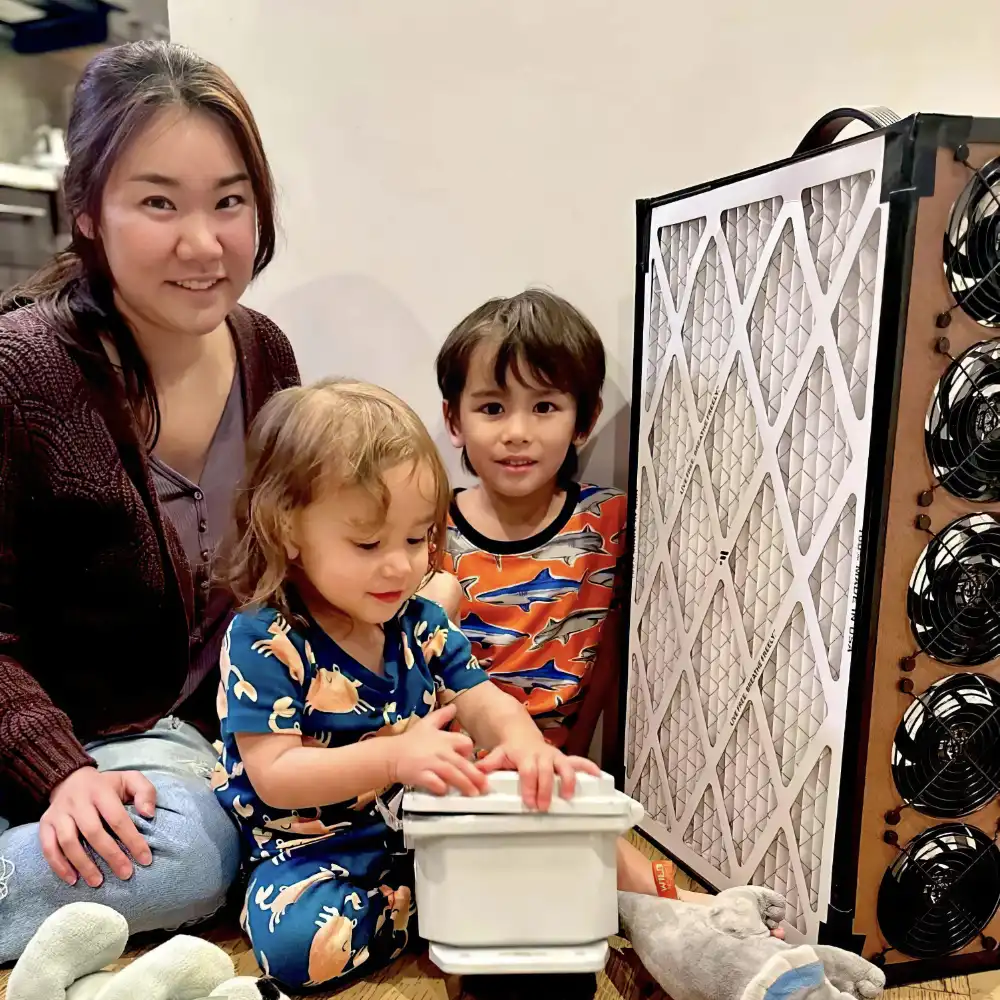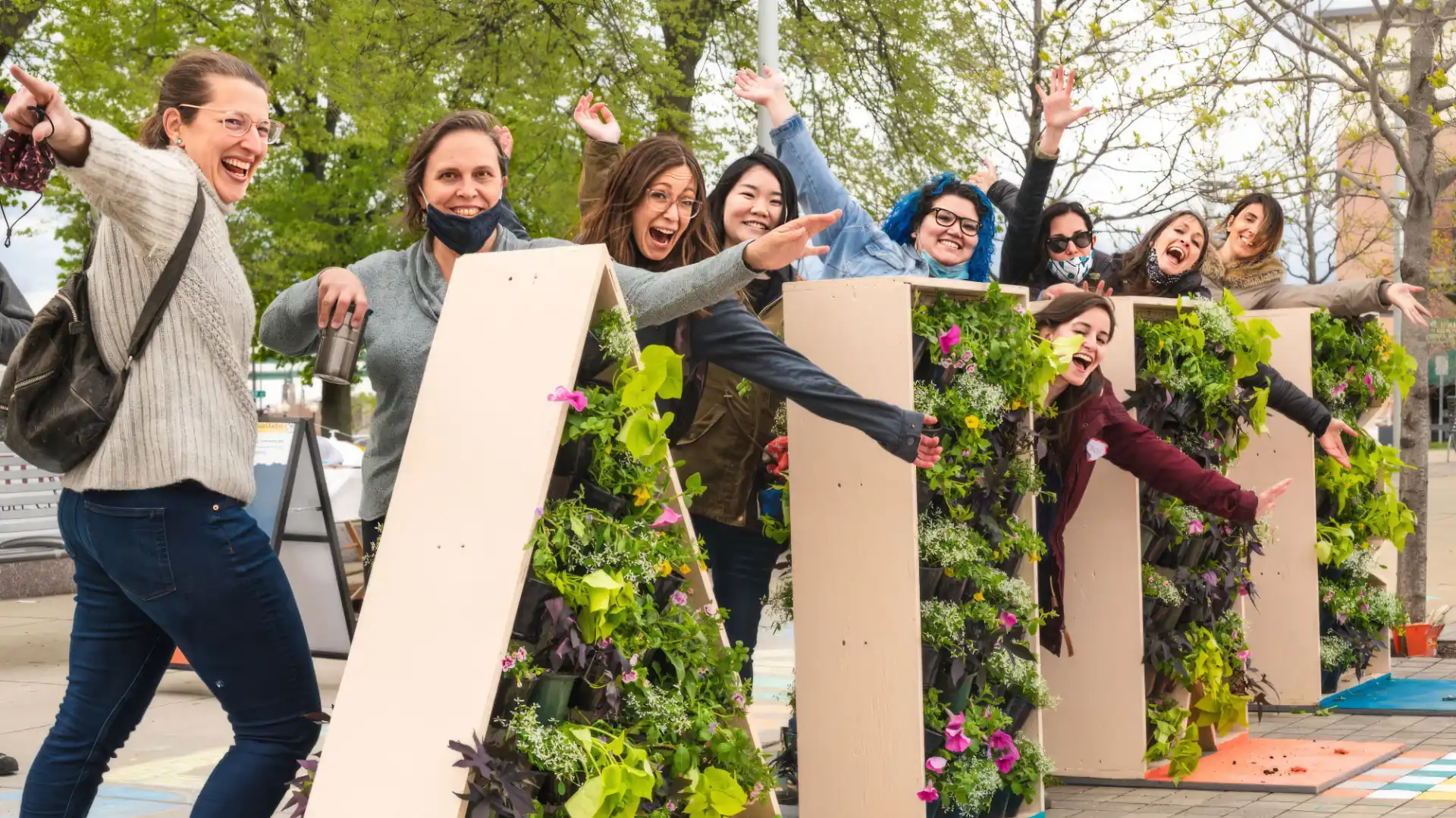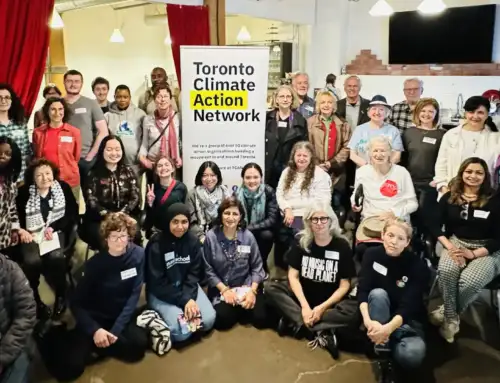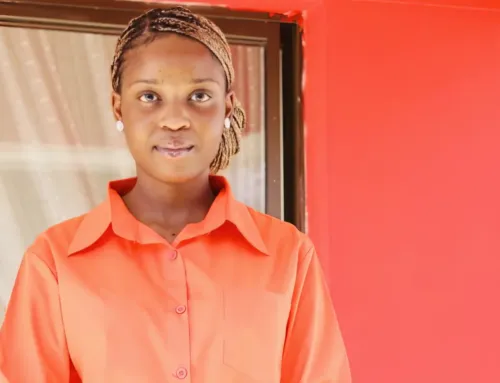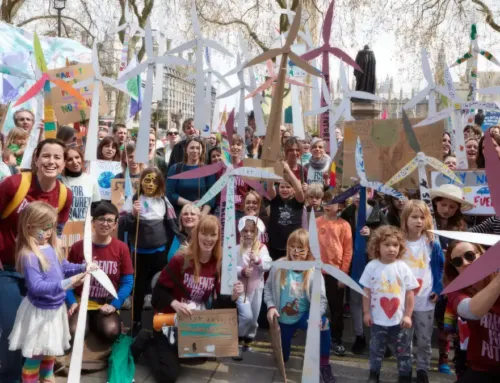STORIES
Valinda Chan:
Breathing Clean Air Is a Human Right – Working for Environmental Justice in the US
Valinda Chan is a passionate organizer and community leader in East Boston, Massachusetts working at the intersection between environmental, racial, economic, health, and housing justice. Recently Valinda’s work has focused on air pollution and founding the Logan Community Clean Air Coalition. Through interventions such as installing air quality sensors and air purifiers in daycare centers, Valinda takes an intersectional approach to addressing air pollution impacts. Valinda is a Team Co-Coordinator with Mothers Out Front East Boston, a Core Team member of Mutual Aid Eastie, and an Our Kids’ Climate 2024 Parent Climate Fellow. Here, Valinda shares how becoming a parent spurred their clean air work, and how important community is to change-making work and family well-being.
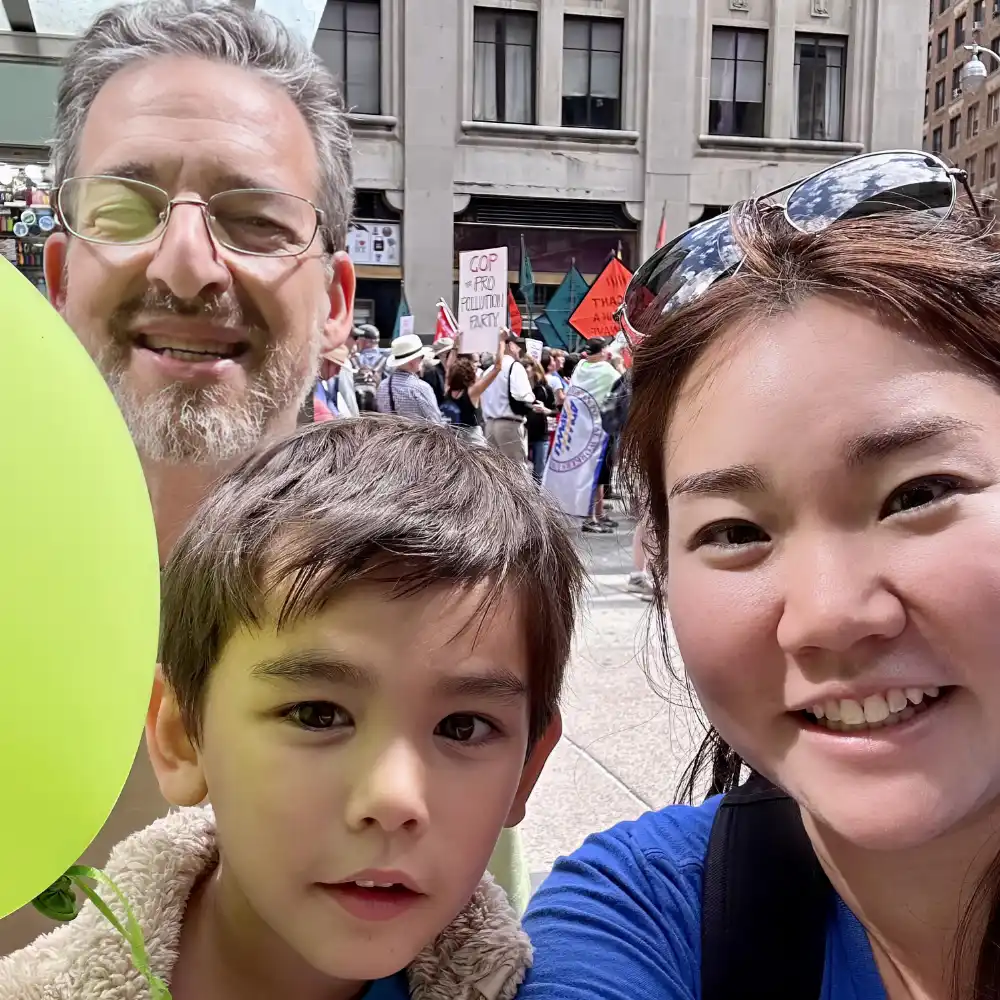
I was raised to not express personal opinions to organizations or governments—or even to vote. Growing up in New York City as the daughter of immigrant parents who endured the Cultural Revolution in China, I learned to associate activism and politics with violence. My parents’ experiences silenced their voices in civic matters. I had always been drawn to the intersection of art and social change, using creative expression as a tool for advocacy and activism through “artivism.” However, I hadn’t imagined work that involved things like testifying at public hearings, coaching others to testify alongside me, or organizing protests on the curb at airports.
That changed after my baby was born and I noticed many children had asthma in our East Boston community. I learned that East Boston has higher childhood asthma rates than other Boston neighborhoods and that children exposed to air pollution can develop obesity, cancer, cognitive delay, and other illnesses. I worried about my infant’s health and wondered, Why aren’t we talking about this? Logan Airport emits literally tons of air pollution into the heart of our community daily. We’re also burdened with pollution from harbor traffic, massive jet fuel and heating oil storage sites, and highways bisecting our neighbourhoods.
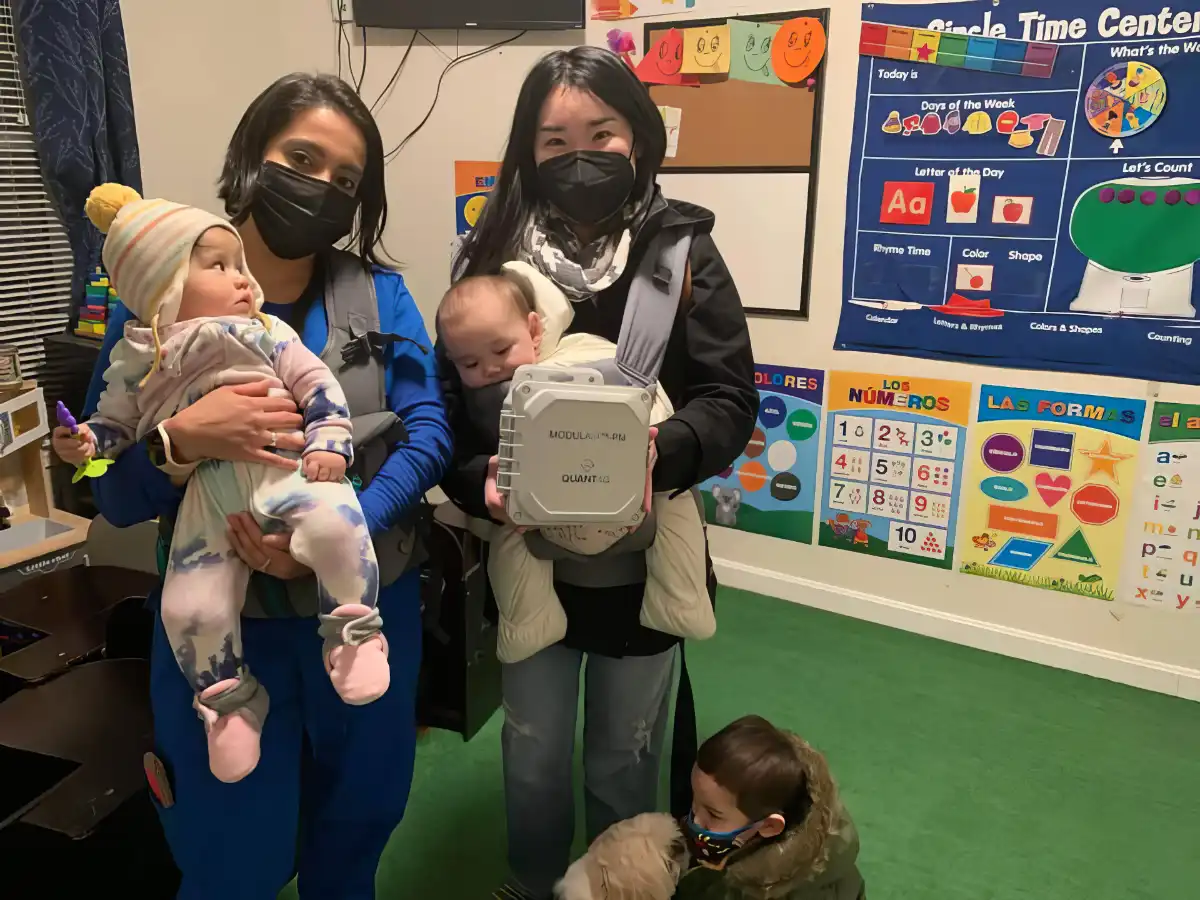
I began attending meetings about East Boston’s air pollution and learned about my neighbors’ challenges. East Boston has historically been an immigrant, working class community and today, more than half of our 50,000 residents are Latino. Many experience housing and food insecurity, energy poverty, and health disparities. East Boston also has some of the highest temperatures and lowest tree canopy in the city, yet people rarely ask why.
In my family it was normal to live close to highways. No one talked about it. Only later did I realize, first-hand, that communities of color are disproportionately exposed to high levels of air pollution. It’s mind boggling that we normalize this. Residents here say, “You get used to the airport’s traffic and noise” and most even get excited when an airplane flies low overhead, not connecting its pollution with disease.
After learning that air pollution exposure during pregnancy is linked to developmental issues, premature birth, and low birth weight, I became terrified during my second pregnancy. My toddler’s daycare was closed due to Covid and on hot days I’d worry, “Should I open the windows? Close them? Which park has less air pollution?” Each week my pregnancy progressed, I sighed with relief that my baby had survived. I was also angry that we couldn’t just open our windows or play outside. I love our community and don’t want to move – and shouldn’t have to. Recognizing the injustice of this expedited my journey into clean air advocacy. In a community where air pollution is normalized, I refuse to accept the status quo.
Through grassroots organizing and community engagement, I’ve planted trees to increase green space and air filtration. Our community group also installed air purifiers in daycares and mounted a beautiful art installation in East Boston’s Central Square Park to promote awareness of the importance of clean air. We used plants to spell aire – air in Spanish—to attract people’s curiosity and questions.
The challenges communities of color face, such as elevated air pollution and disproportionate climate impacts, are connected to racism, health disparities, and gentrification and it’s crucial to make these larger conversations accessible for everyone.
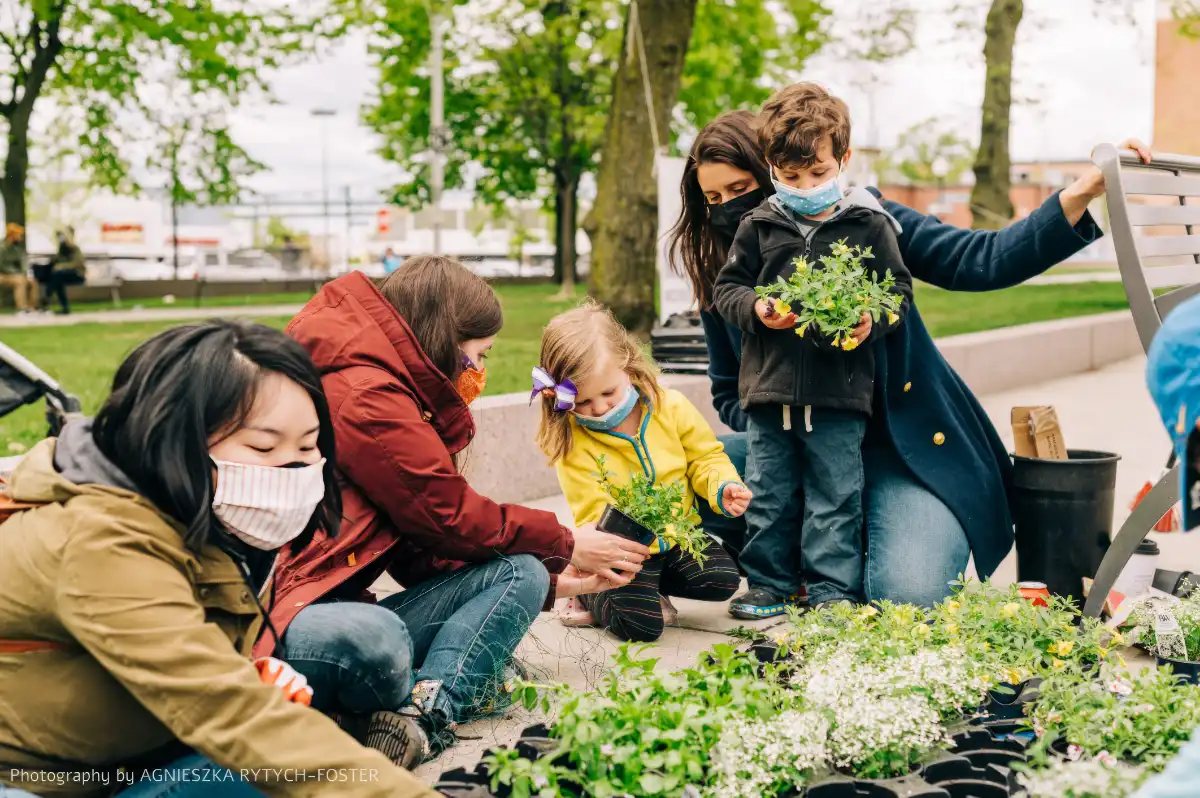
East Boston is designated as an Environmental Justice community due to its lower income, high percentage of minorities, and heavy pollution burden. The idea is that everyone has a right to protection from environmental hazards and to live in a clean, healthful environment.
My work includes evolving the Logan Clean Air Coalition which is comprised of 15 community groups and 58 individual community members and leaders. We’ve collaborated more, including for a demonstration at Logan Airport. State law prohibits idling for more than five minutes but Massport, which oversees airport operations, wasn’t enforcing it. Forty of us walked along the airport curb giving drivers information about air pollution’s health impacts and asking them to stop idling. Our Twitterstorm then encouraged our elected representatives and Massport officials to take action. Soon after, “No Idling” signs were installed.
But our fight for environmental justice isn’t without challenges. A huge electrical substation is being built here despite years of community opposition, putting profit over our health and safety – a stark reminder of the systemic injustices we face. Yet, through grassroots organizing and coalition building, we’ve made strides.
We’re pushing for clean air to be a human right, which means dismantling inequitable systems. But I also love hands-on projects like workshops teaching people to build their own air purifiers. We try to change mindsets: We can have good jobs while protecting our climate and our people. To help engage and include more people this year – and for our community members’ own emotional well-being, I want more joy-based activities. I’m also planning to co-create more community art projects to facilitate more inclusive dialogues and to work to make our clean air coalition more sustainable.
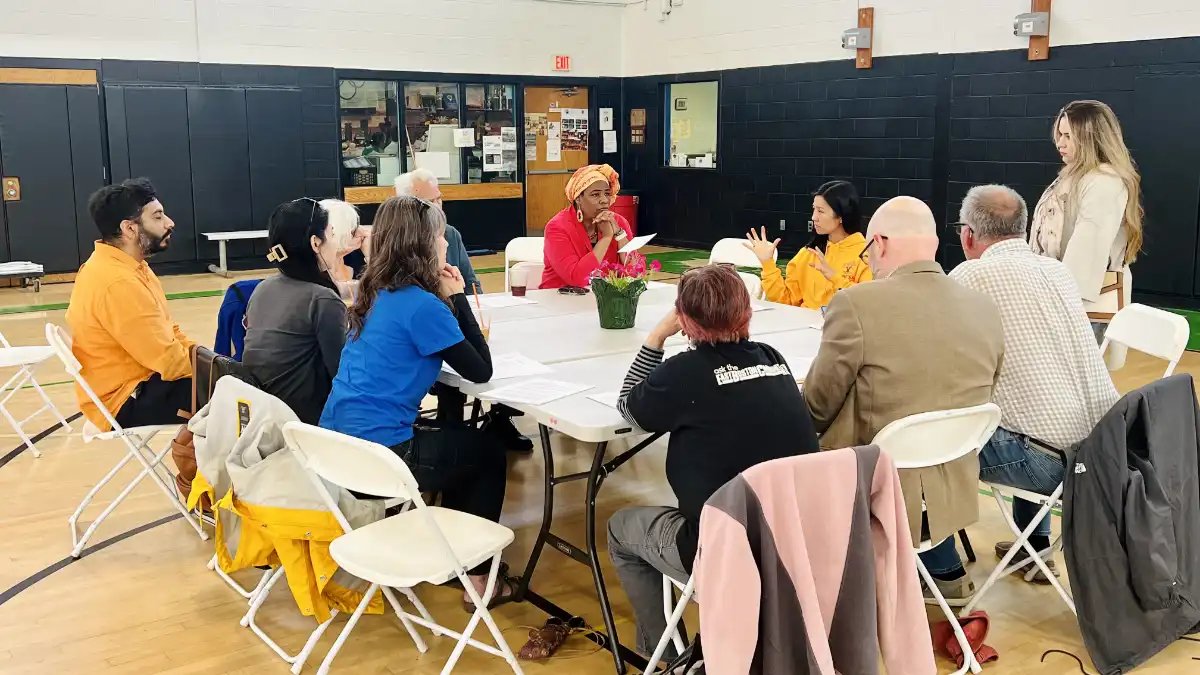
I’m grateful for inclusive spaces like Our Kids’ Climate and Mothers Out Front where everyday people can be part of the environmental justice movement. There’s power in being around parents who connect, learn, and act together. That gives me hope. Centering the perspectives of caregivers, children, and future generations has made me more grounded when speaking about climate change or air pollution.
My involvement in environmental justice initiatives has had a profound impact on my parenting journey. By sharing childcare duties at our events, we create opportunities for collective learning and growth within our community. Discussing complex issues such as fossil fuels, air pollution, and antiracism with our children fosters a deeper understanding of and appreciation for the world around us. Amidst the challenges of this work, I find solace and encouragement within our community. It provides unwavering support and solidarity, serving as a source of resilience during moments of fatigue and burnout.
Every day, though, I worry about climate impacts that disproportionately affect children and marginalized populations. That needs to change. East Boston is surrounded by water and already experiences flooding. What will happen as the climate crisis intensifies? Will we be forced to relocate? Will we be able to afford to?
I do this work for my family and future generations, but also for community members whose voices are often unheard. My immigrant parents sacrificed their voices for our safety, and now, I’m able to use mine to uplift others. The deepest joy I get from this work is when I can connect folks in my community so they can know each other, work together, and lift each other up as we strive towards a future where clean air is not merely a privilege but a fundamental right for all.
